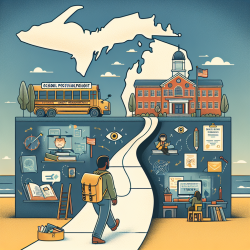Introduction
In the dynamic world of medical education, the process of remediation plays a crucial role in supporting learners who have veered off the path toward becoming competent practitioners. The research article "Guidelines: The dos, don’ts and don’t knows of remediation in medical education" provides valuable insights into effective remediation practices. This blog aims to distill these insights into practical advice for practitioners seeking to enhance their skills and improve remediation outcomes.
Understanding Remediation: The Basics
Remediation in medical education is about facilitating corrections for learners who are struggling. The goal is to ensure that all learners achieve the necessary competence to progress in their medical careers. The guidelines presented in the research article are divided into two categories: systems-level interventions and individual learner recommendations.
Do’s: Best Practices for Effective Remediation
- Develop a Robust Feedback Culture: Encourage a culture where feedback is regularly given and received, promoting continuous improvement.
- Align Selection and Assessment Systems: Ensure that selection processes and assessments align with desired graduate qualities and outcomes.
- Construct Strategies to Avert Remediation: Implement preventive measures such as frequent testing and support groups to reduce the need for remediation.
- Deliver Highly Individualized Remediation: Recognize common patterns among struggling learners but tailor remediation to individual needs.
- Provide Faculty Development: Equip educators with the skills and resources needed to identify and support struggling learners effectively.
Don’ts: Practices to Avoid
- Avoid Sole Reliance on Traditional Academic Markers: Do not depend solely on academic performance indicators to identify struggling learners.
- Do Not Merely Extend Time: Simply giving more time or repeating experiences without additional support is ineffective.
Don’t Knows: Areas for Further Research
- Long-term Outcomes of Remediation: More research is needed to understand the long-term effects of remediation programs.
- Optimal Blend and Duration of Remediation: Determining the most effective combination and length of remediation interventions remains an open question.
Conclusion
Remediation is a complex process involving various stakeholders, including learners, educators, and institutions. By implementing the guidelines outlined in the research, practitioners can enhance their remediation practices, ensuring that learners receive the support they need to succeed. Ongoing research and adaptation of these guidelines will further improve remediation outcomes, benefiting both learners and the medical profession as a whole.
To read the original research paper, please follow this link: Guidelines: The dos, don’ts and don’t knows of remediation in medical education.










